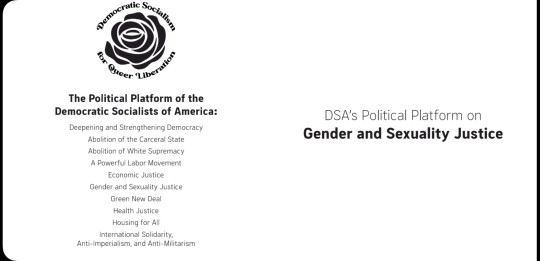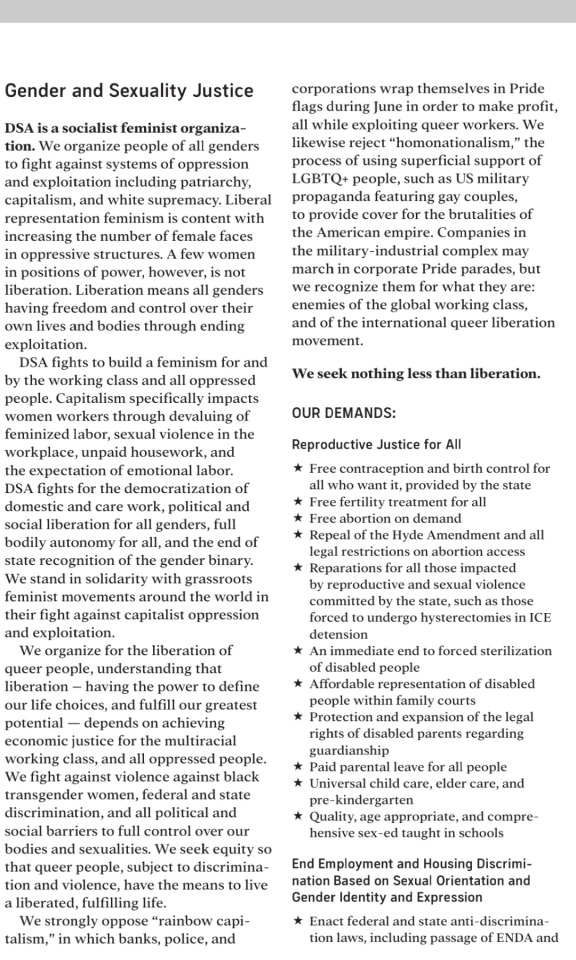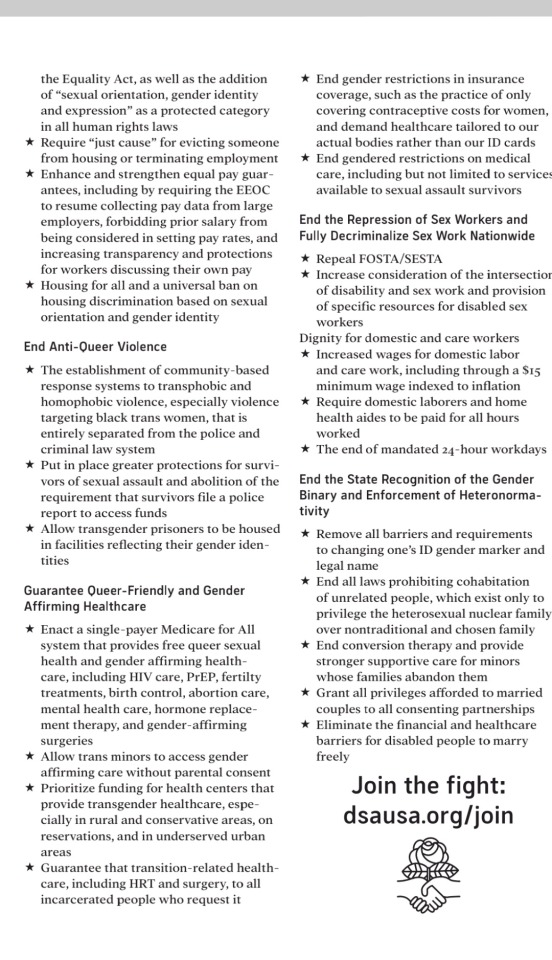#eviction court representation
Text
Eviction Services In Martin County, Florida - Law Office of Ryan S. Shipp, PLLC
Martin County Eviction Lawyers
Are you a landlord facing tenant issues in Martin County, Florida? Do you require legal assistance with residential or commercial evictions? Look no further than Law Office of Ryan S. Shipp, PLLC. Our experienced team concentrates our practice in navigating the complexities of landlord-tenant law and ensuring swift and effective resolution of your eviction…

View On WordPress
#commercial eviction services#eviction appeal lawyer#eviction attorney Martin County#eviction court representation#eviction hearing expert#eviction lawsuit assistance#eviction mediation services#eviction notice services#eviction process Martin County#fast eviction services#florida landlord rights#landlord lawyer Florida#landlord legal services Martin County#landlord-tenant court Florida#Law Office of Ryan S. Shipp#lease agreement violations#lease termination lawyer#Martin County property law#non-payment of rent lawyer#property damage claims#property management legal support#reliable eviction attorney#rent arrears attorney#renter eviction legal advice#residential eviction assistance#tenant dispute resolution#tenant eviction law#tenant law specialist#tenant removal legal help#unlawful detainer action Florida
0 notes
Text
Hi. I know you guys remember Mars from when they used to post on this site as sensitiveblackperson, right?
instagram
For the past several months they've been fundraising to escape their abusive roommate, who's been attempting to illegally evict them while withholding their security deposit. They now have several court hearings to attend on account of their roommate lying about them and reporting them to the police, so they need funds for legal representation, too.
I've been seeing this scenario play out in real time and I can't think of much else to do. I don't have much of a reach on any platform. I don't have a lot of money. I wanted to get Mina Le to share their fundraiser posts since she talked about Art Hoe in a video several months ago, but I don't know if she ever did.
I've linked above the latest in several fundraising posts they've made on Instagram. The goal says $2000, but due to the legal proceedings, they're going to need more than that. Since the start of their campaign, they've made about $500. If you can, please chip in and share this.
vnmo: @mutatedmango
cshpp: $mutatedmango
or you can send gifts via pypal to [email protected]
1K notes
·
View notes
Text
The Ecologists, La France Insoumise, the French Communist Party, and the Socialist Party unveiled, at a joint press conference, the programme of the left-wing alliance to the legislative elections. He condemned the "terrorist massacre of Hamas".
A programme in "20 measures of rupture", during the "first 15 days", to "reply to the emergency that damage the life and confidence of the French people". Wage indexation on inflation, rise of Smic, repeal of unemployment and pension insurance reforms… At a press conference held on Friday 14 June, the leaders of the left-wing parties behind the "New Popular Front" unveiled their legislature contract.
Decreeing the social emergency
-Block the prices of basic necessities (food, energy, fuels)
-Repealing pension and unemployment insurance reform
-Inflation of wages
-Fixing the SMIC and the minimum pension at EUR 1600 net
-Remove the minimum old-age age at the poverty line (60% of the SMIC)
-Restoring the wealth tax, "reinforced with a climate component"
Declaring an immediate ceasefire in Gaza
-Breaks with the support of the French government to Benjamin Netanyahu, and enforce the order of the International Court of Justice (ICJ), which evokes a risk of genocide
-Action for the release of hostages detained since the Hamas terrorist massacres and for the release of Palestinian political prisoners
-Subsistent International Criminal Court (ICC) in its prosecution of Hamas leaders and the Israeli government
-Immediate recognition of the State of Palestine alongside the State of Israel on the basis of UN resolutions
-Alspering the organisation of free elections in Palestine under international control
Defending Ukraine
Defending the sovereignty of the Ukrainian people and their territory through the delivery of the necessary weapons
Seity of oligarch assets in banks
-Sending of blue helmets, in particular to secure nuclear power plants
Addressing the climate challenge
-Adoption of a climate plan for carbon neutrality in 2050, and the principle of the green rule
-Adopting an "energy-climate" law, the beginnings of ecological planning
-Decree a moratorium on motorway infrastructure projects (A69…), and mega-bassines
-Adopting a water-sharing plan at the national level
Is it a 6th Republic
-Rebrogate article 49, paragraph 3
-Election of the National Assembly and the Senate by proportional representation
-Introduce the Citizens' Initiative Referendum (RIC)
To convene a constituent assembly to draft a new Constitution
Guaranteeing the right to housing
Build 1 million "green" housing units over 5 years
Repeal the Kasbarian Act, and abolish evictions
-Ammguring rent in tense areas
-Maintenate the SRU Act (20 or 25 per minimum of social housing per commune) Reshaping Europe
-Generating super-profit taxation at European level
-Finance of free trade agreements (CETA, Mercosur, etc.)
-Refusing the Fiscal Stability Pact
-Reforming the Common Agricultural Policy (CAP)
16 notes
·
View notes
Text
Five years since Indian Prime Minister Narendra Modi’s government stripped Jammu and Kashmir of its autonomous status, the central government’s iron-fisted approach to the region has left it more vulnerable to regional and geopolitical threats.
While Kashmir Valley, which has withstood the brunt of armed insurgency since 1989, continues to simmer with militancy-related violence, the theater of terrorism has now extended into the otherwise peaceful province of Jammu. Since 2019, at least 262 soldiers and 171 civilians have died in more than 690 incidents, including the February 2019 Pulwama terrorist attack. The unsustainable and disproportionate loss of lives underscores the risks to both regional stability and India’s national security.
In 2019, the Modi government revoked Article 370 of the Indian constitution, which granted the state of Jammu and Kashmir its special status, annihilating the contested region’s symbolic autonomy. Concurrently, the central government also imposed an indefinite curfew in the region and used internet shutdowns and arrests to control and suppress the local population. The result was a transformed landscape. Already scarred by militarization, Kashmir became enmeshed in barbed wire.
This undemocratic exercise, though later stamped and endorsed by India’s Supreme Court, has since spurred further legal changes. For example, the local population no longer has access to exclusive protections that previously allowed only permanent residents of Jammu and Kashmir to apply for government jobs and buy property in the state.
In March 2020, the government repealed 12 and amended 14 land-related laws, introducing a clause that paved the way for a development authority to confiscate land and another that allowed high-ranking army officials to declare a local area as strategically important.
Local residents are appalled at the ease with which government agencies can now seize both residential and agricultural lands in the name of development and security—enabling mass evictions and the bulldozing of houses that are disproportionately affecting Muslim communities and small landowners.
Meanwhile, the ecological fallout from introducing massive road and railway networks, coupled with the addition of mega hydroelectricity projects, is polluting riverbeds and causing villages to sink. Since 2019, there has been a lack of local representation which could act as a buffer against massive development projects, most of which now fall under New Delhi’s governance. Meanwhile, the region’s unemployment rate, as of 2023, remains high at above 18 percent, as compared to the national average of 8 percent.
Over the last few years, the Modi government has also squashed dissent in the region by redirecting the military to maintain surveillance and control of the civilian population. According to the Forum for Human Rights in Jammu and Kashmir, over 2,700 people were arrested in the region between 2020 and 2023 under India’s contentious Unlawful Activities (Prevention) Act and the Public Safety Act. Those arrested include journalists like Fahad Shah and Sajad Gul, human rights defenders like Khurram Pervez, and prominent lawyers like Mian Qayoom and Nazir Ronga.
Modi’s repressive policies have deepened the trust deficit between Kashmiris and the Indian government. The top-down administration has further sidelined local bureaucrats and police officers, further widening the gap between the central government and local ground realities.
All of this has not only pushed the local population into distress, but also jeopardized India’s already fragile relations with its two nuclear neighbors, Pakistan and China.
The Kashmir conflict, rooted in the 1947 partition of India, has led to three major wars and several military skirmishes between India, Pakistan, and China. And though the region has always been contentious—India controls more than half of the total land, while Pakistan controls 30 percent, and China holds the remaining 15 percent in the northeast region near Ladakh—Modi’s aggressive handling has further provoked its neighbors.
Following the revocation of Article 370, the region was split into two separate union territories—Jammu and Kashmir forming one and Ladakh forming another, with both falling under the central government’s control.
This redrawing of the region’s internal borders, which signaled New Delhi’s assertions of reclaiming the Chinese-occupied territory near Ladakh—as well as India’s increasing tilt towards the United States—resulted in a deadly clash between India and China in 2020 and another one in 2022. Despite diplomatic efforts to resolve tensions over the disputed Himalayan border, New Delhi has accused Beijing of carrying out “inch by inch” land grabs in Ladakh since 2020.
Meanwhile, Pakistan-administered Kashmir has been rocked by mass protests of its own this year, owing to the country’s political and economic crisis, exacerbated in part by the abrogation of Article 370. Those living in Pakistan-administered Kashmir fear that Pakistan may similarly try to dilute the autonomy of the region.
With refugees flooding in from Afghanistan on its west amidst Imran Khan’s standoff with the Pakistani Army, Islamabad has been on edge and looking for diversionary tactics. The deepening of Pakistani-Chinese relations, including military ties, has contributed to a volatile mix.
But Kashmir’s vulnerability has worsened partly because of India’s own tactical blunders, too. The last decade witnessed a spurt in home-grown militancy, but since 2019 the landscape has been dominated by well-trained militants from across the Pakistani border who have access to sophisticated weapons and technology.
Indian security forces, including paramilitaries and the local police, have turned a blind eye to these emerging threats, especially in the twin districts of Rajouri and Poonch along the border with Pakistan. It is in this area that the impact of terror attacks has been most felt.
The region is home to the nomadic Gujjar-Bakerwal communities and the ethnolinguistic Paharis. These groups are parts of divided families straddling the India-Pakistan border, and this shared cultural linkage between the Indian and Pakistani sides has been weaponized in the past by intelligence networks of both countries.
The Indian armed forces have historically relied on the Gujjar-Bakerwal communities for intelligence gathering in part because of their nomadic lives and deep knowledge of the region’s topography. However, since 2019, the evictions of nomads from forest lands, following the amendment of several land-related laws, as well as affirmative actions for Paharis, a rival ethnic group, have led to the disenchantment of the Gujjar-Bakerwals—and an eventual loss of traditional intelligence assets for India.
Another blunder has been the redeployment of troops from Jammu to the border with China in the northeast, following China’s incursions in Ladakh’s Galwan Valley in 2020. This has left Jammu dangerously exposed to militants who have been infiltrating the region from across the line of control on the western side and carrying out their operations with a fair degree of success.
In 2024 alone, Jammu has witnessed numerous attacks which have resulted in the deaths of 16 soldiers and 12 civilians. In June, for example, the region experienced one of its deadliest attacks when militants opened fire on a bus carrying Hindu pilgrims, killing nine and injuring over 30.
Kashmir’s internal politics has the potential to spill over and push the region into disaster. While India has made some significant strides in international diplomacy under Modi, it tends to neglect the neighborhood where the risks to India’s national security remain the highest. Its diplomatic engagement with China comes in fits and starts but diplomacy with Pakistan remains nonexistent, despite the resumption of a ceasefire in 2021. And while India considers the removal of Jammu and Kashmir’s special status an internal matter, Pakistan sees it as a provocation. All in all, there is a dangerous lack of engagement between the two nuclear rivals in South Asia.
In theory, the ongoing regional elections in Jammu and Kashmir provide a glimmer of opportunity for the people to choose their own local government for the first time in a decade. However, irrespective of who wins the elections, the local leaders will lack the power to enact meaningful change, given that the region remains under the control of New Delhi following its demotion from a state to two union territories.
For instance, Ladakh does not have a legislative assembly, and while Jammu and Kashmir have an elected assembly, the real powers are vested in the hands of a governor, who was appointed to lead the region by the Modi-led central government. As recently as July, the Indian government ruled to further expand the governor’s oversight powers, delivering a blow to local politicians and voters.
Much more needs to be done to change the status quo. Though it remains unlikely, New Delhi must consider meaningful solutions that could assuage some of the political wounds inflicted by the complete erosion of Jammu and Kashmir’s autonomy, including, for example, the restoration of statehood to the region. In order to win back the trust of Kashmiris, the Indian government must reinstate civil liberties and deliver on its promise to provide economic development and jobs.
To improve the region’s safety, Indian agencies must acknowledge their security lapses and repair their broken intelligence networks. And while the Indian security forces must not lower their guard against terrorist activities, terrorism should not be proffered as an excuse when it comes to the normalization of relations in the neighborhood.
Neither Pakistan, nor India can afford the war which is looming over their heads. Diplomatic negotiations, including over Kashmir, must begin with a sense of urgency.
3 notes
·
View notes
Text



The Political Platform of the Democratic Socialists of America:
Abolition of the Carceral State
Abolition of White Supremacy
A Powerful Labor Movement
Economic Justice
Gender and Sexuality Justice
Green New Deal
Health Justice
Housing for All
International Solidarity,
Anti-Imperialism, and Anti-Militarism
DSA' Political Platform on
Gender and Sexuality Justice
DSA is a socialist feminist organization. We organize people of all genders to fight against systems of oppression and exploitation, including patriarchy, capitalism, and white supremacy.
Liberal representation feminism is content with increasing the number of female faces in oppressive structures. A few women in positions of power, however, is not liberation. Liberation means all genders having freedom and control over their own lives and bodies through ending exploitation.
DSA fights to build a feminism for and by the working class and all oppressed people. Capitalism specifically impacts women workers through devaluing of feminized labor, sexual violence in the workplace, unpaid housework, and the expectation of emotional labor.
DSA fights for the democratization of domestic and care work, political and social liberation for all genders, full bodily autonomy for all, and the end of state recognition of the gender binary.
We stand in solidarity with grassroots feminist movements around the world in their fight against capitalist oppression and exploitation.
We organize for the liberation of queer people, understanding that liberation – having the power to define our life choices, and fulfill our greatest potential — depends on achieving economic justice for the multiracial working class, and all oppressed people.
We fight against violence against black transgender women, federal and state discrimination, and all political and social barriers to full control over ourbodies and sexualities. We seek equity so that queer people, subject to discrimination and violence, have the means to livea liberated, fulfilling life.
We strongly oppose “rainbow capitalism,” in which banks, police, andcorporations wrap themselves in Pride flags during June in order to make profit, all while exploiting queer workers.
We likewise reject “homonationalism,” the process of using superficial support of LGBTQ+ people, such as US military propaganda featuring gay couples, to provide cover for the brutalities of the American empire. Companies in the military-industrial complex may march in corporate Pride parades, but we recognize them for what they are: enemies of the global working class, and of the international queer liberation movement.
We seek nothing less than liberation.
OUR DEMANDS:
Reproductive Justice for All
Free contraception and birth control for all who want it, provided by the state
Free fertility treatment for all
Free abortion on demand
Repeal of the Hyde Amendment and all legal restrictions on abortion access
Reparations for all those impacted by reproductive and sexual violence committed by the state, such as those forced to undergo hysterectomies in ICE detension
An immediate end to forced sterilization of disabled people
Affordable representation of disabled people within family courts
Protection and expansion of the legal rights of disabled parents regarding guardianship
Paid parental leave for all people
Universal child care, elder care, and pre-kindergarten
Quality, age appropriate, and comprehensive sex-ed taught in schools
End Employment and Housing Discrimination Based on Sexual Orientation and Gender Identity and Expression
Enact federal and state anti-discrimination laws, including passage of ENDA and the Equality Act, as well as the addition of “sexual orientation, gender identity and expression” as a protected category in all human rights laws
Require “just cause” for evicting someone from housing or terminating employment
Enhance and strengthen equal pay guarantees, including by requiring the EEOC to resume collecting pay data from large employers, forbidding prior salary from being considered in setting pay rates, and increasing transparency and protections for workers discussing their own pay
Housing for all and a universal ban on housing discrimination based on sexual orientation and gender identity
End Anti-Queer Violence
The establishment of community-based response systems to transphobic and homophobic violence, especially violence targeting black trans women, that is entirely separated from the police and criminal law system
Put in place greater protections for survivors of sexual assault and abolition of the requirement that survivors file a police report to access funds
Allow transgender prisoners to be housed in facilities reflecting their gender identities
Guarantee Queer-Friendly and Gender Affirming Healthcare
Enact a single-payer Medicare for All system that provides free queer sexual health and gender affirming healthcare, including HIV care, PrEP, fertilty treatments, birth control, abortion care, mental health care, hormone replacement therapy, and gender-affirming surgeries
Allow trans minors to access gender affirming care without parental consent
Prioritize funding for health centers that provide transgender healthcare, especially in rural and conservative areas, on reservations, and in underserved urban areas
Guarantee that transition-related healthcare, including HRT and surgery, to all incarcerated people who request it
End gender restrictions in insurance coverage, such as the practice of only covering contraceptive costs for women, and demand healthcare tailored to our actual bodies rather than our ID cards
End gendered restrictions on medical care, including but not limited to services available to sexual assault survivors
End the Repression of Sex Workers and Fully Decriminalize Sex Work Nationwide
Repeal FOSTA/SESTA
Increase consideration of the intersection of disability and sex work and provision of specific resources for disabled sex workers
Dignity for domestic and care workers
Increased wages for domestic labor and care work, including through a $15 minimum wage indexed to inflation
Require domestic laborers and home health aides to be paid for all hours worked
The end of mandated 24-hour workdays
End the State Recognition of the Gender Binary and Enforcement of Heteronormativity
Remove all barriers and requirements to changing one’s ID gender marker and legal name
End all laws prohibiting cohabitation of unrelated people, which exist only to privilege the heterosexual nuclear family over nontraditional and chosen family
End conversion therapy and provide stronger supportive care for minors whose families abandon them
Grant all privileges afforded to married couples to all consenting partnerships
Eliminate the financial and healthcare barriers for disabled people to marry freely
This pamphlet contains an excerpt from the Political Platform of the Democratic Socialists of America, ratified at the organization’s 2021 National Convention. The platform is a living document, up for amendment by our highest deliberative body, the national convention, every other year. You can read the current version of the full platform at ntdsa.org/nationaldsaplatform
Read the latest version of DSA’s full platform at
ntdsa.org/nationaldsaplatform
#us politics#democratic socalists of america#late stage capitalism#mutual aid#community organizing#trans rights#abortion rights#activism#political activist#political action#intersectional feminism#eat the rich#leftism#february 2024
10 notes
·
View notes
Photo








The US' 2,000-year-old mystery mounds - BBC Travel
Constructed by a mysterious civilisation that left no written records, the Hopewell Ceremonial Earthworks are a testament to indigenous sophistication.
Autumn leaves crackled under our shoes as dozens of eager tourists and I followed a guide along a grassy mound. We stopped when we reached the opening of a turf-topped circle, which was formed by another wall of mounded earth. We were at The Octagon, part of the Hopewell Ceremonial Earthworks, a large network of hand-constructed hills spread throughout central and southern Ohio that were built as many as 2,000 years ago. Indigenous people would come to The Octagon from hundreds of miles away, gathering regularly for shared rituals and worship.
"There was a sweat lodge or some kind of purification place there," said our guide Brad Lepper, the senior archaeologist for the Ohio History Connection's World Heritage Program (OHC), as he pointed to the circle. I looked inside to see a perfectly manicured lawn – a putting green. A tall flag marked a hole at its centre.
The Octagon is currently being used as a golf course. ...
... However, after the Hopewell Culture gradually began to disappear starting around 500 CE, other indigenous peoples stepped in to become caretakers of the land. One of those groups was the Shawnee Tribe, which called Ohio home before they were forcibly removed west of the Mississippi River in the 1830s.
"We may not have been responsible for building or creating them, but I know that my ancestors lived there, and that my ancestors protected them and respected them," said Chief Glenna Wallace of the Eastern Shawnee Tribe of Oklahoma, who believes that other tribes should have a role in the future of protecting the Hopewell Earthworks and communicating their cultural importance.
However, receiving Unesco status is a difficult, bureaucratic process. While sitting on land owned by the OHC, The Octagon is under the control of the Moundbuilders Country Club. The club negotiated an unprecedented lease that extends until 2078 and only allows visitors to walk the mounds four times a year. The rest of the time, visitors can access a platform in the car park to view a very small section of the property. OHC is currently suing to evict the country club (with compensation) through eminent domain. The lower courts ruled in favour of the historical society, but the Ohio Supreme Court is hearing an appeal. If OHC can't guarantee public access, this may affect Unesco's decision.
While a Unesco designation wouldn't entail the return of land or reparations, it does mean greater local representation and education about Ohio's Native American history. It also means more indigenous stakeholders, like the Shawnee, telling that story from an indigenous perspective for future generations.
"I just want people to know about it," said Chief Wallace, "I want people to be able to see it. I want people to be able to visit it and want people to realise that it is a cultural phenomenon. That it's priceless."
37 notes
·
View notes
Text

Moor Mother - Circuit City back cover
Transcript below cut
Reverse Gentrification of the Future Now
The present realities of housing for low-income people living in Philadelphia are located temporally-spatially near the one in Circuit City. We are experiencing an affordable housing crisis, and this crisis is exacerbated by the average of 22,000 eviction filings each year and the unknown number of illegal evictions. In my work as Managing Attorney of the Housing Unit at Community Legal Services, where we provide legal representation and advice to more than 3,000 low-income tenants a year, I hear countless stories of tenants who face racial, sex, gender, family, ethnicity, and disability discrimination from landlords; stories of tenants intimidated into not complaining about substandard housing conditions that exacerbate health and safety problems; or tenants who received eviction filings from disgruntled landlords that have resulted in virtual blacklisting from future homes and opportunities for stability. Growing displacement and mass evictions of entire buildings of often low-income residents is a particularly vicious form of eviction that has widespread health and economic impacts, and destroys economic, cultural, and racial diversity in neighborhoods. Mass evictions, often unexpected, further aggravate the city’s shortage of affordable housing—existing affordable housing units are often lost forever, putting pressure on resources and housing stock elsewhere in the City and concentrating poverty in particular neighborhoods.
Compounding these issues is pervasive housing discrimination – single mothers and their children, seniors, Black people, LGBTQ people, immigrants, and people living with disabilities are disproportionately impacted by evictions and lack of access to safe, habitable, and affordable housing. Tenants face systemic and individual discrimination at every stage of the process – they are barred from getting into a new home for discriminatory reasons, and often kicked out of their homes for those same reasons.1 The ACLU, for instance highlights how “women of color bear the burden of eviction,” noting that women of color made up 62% and 70% of the tenants facing in eviction in Chicago and Philadelphia respectively.2 These and other instances of structural inequity related to housing disproportionately impact the City’s poor, Black and Hispanic populations live in racially concentrated poverty.3 This loss of housing has a distinct racial impact, where 63% of African-Americans live in project-based housing compared with 44% of the city’s population, and where African-Americans are disproportionately more likely to carry severe housing cost burdens in the city.
These types of inequalities are often framed in terms of spatial inequality and displacement from location. However, as Helga Nowotowny notes, “power, exercised by central authorities, establishes itself over space and over time.”4 (emphasis added). Hierarchies of time, inequitable time distribution, and uneven access to safe and healthy futures inform intergenerational poverty in marginalized communities the same ways that wealth passes between generations in traditionally privileged families. Sociologist Jeremy Rifkin says that “temporal deprivation is built into the time frame of every society,” where people living in poverty are temporally poor as well as materially poor.”5 For example, time poverty is routinely used to penalize marginalized people in the justice system, where being ten minutes late to court can mean losing your job, kids, home, and freedom. Time and temporal inequities show up at every step of the eviction process, for example, from the short or fully waivable notice requirements for termination of a lease agreement, to the time required for an evicted family to vacate a unit that is severely out of line with the time needed to secure new housing. Inevitably, marginalized Black communities are disproportionately impacted by both material, spatial, and temporal inequalities in a linear progressive society, with many Black communities forced to occupy “temporal ghettos” as well as spatial ones.
Circuit City considers both the implications of time and of space involved in privatization of public housing, gentrification, displacement, and redevelopment. There is no set year or place in the play, but instead a layering of multiple temporal spaces. The residents of Circuit City are integrating the time(s) of redevelopment, privatization, and hyper-gentrification, into the pre-established temporal dynamics of the community, layered over and within the communal historical memory and the shared idea of the future(s) of that community. Nested within those layers are individual, subjective temporalities and the lived realities of the residents, at odds with the linear, mechanical model of time on which Circuit City and its external spatial-temporal constructs are etched. It takes as its central provocation a practical strategy for achieving a Black flight, a reverse gentrification, and inverse displacement, and the conditions necessary for temporal autonomy and spatial agency. Circuit City is presented using Black Quantum Futurism praxis as a critical framework, fusing Afrodiasporan philosophies and rituals with quantum physics, recovering artifacts of Black temporal consciousness, and dismantling oppressive social temporal constructs.
26 notes
·
View notes
Text
Eviction, Hawaii, and a little advice
Hello, lovely listeners, and welcome back to another episode of Worn. I'm your host, Silla Quiñones, and I'm here to explore the intricate threads of labor, self-discovery, growth, and the harsh realities of poverty. Today's episode is a sobering yet important one. We'll be delving into a topic that affects countless lives across the globe, with a focus on the US – evictions and notices.
Evictions are more than just notices to move; they're about people's lives being upended. Eviction notices arrive like unexpected storms, disrupting the fragile stability of those already teetering on the edge. Imagine receiving that letter, feeling the weight of uncertainty and fear, wondering where you'll lay your head next. Today, we're diving deep into this topic, exploring personal stories, the social fabric, and potential solutions.
The first story on our radar is of the families on Maui in Hawaii.
As many of us are aware, our friends in Hawaii, specifically on the island of Maui have suffered a horrendous fire. A fire which the Hawaii power utility company has taken responsibility for starting. They had over 60,000 utility poles which were outdated from, and I quote from the Ap article on it, “its own documents described as built to “an obsolete 1960s standard,””.
it is such a horrific situation they’ve caused by not prioritizing safety for well over 50 years on the island of Maui.
To compound this horrible event, eviction notices have been circulating. Yes, there are human beings that saw this disaster unfold and decided that it would be appropriate to claim that individuals affected are “in breach” of their leases during this crisis and uproot them. It is, in my opinion, such a shameful and horrific act to be party to.
Now something incredibly important to note is that according to the Statewide Office on Homelessness and Housing Solutions of Hawaii, it is absolutely a violation of the statewide eviction moratorium in place to protect those affected in by the fires.
Evictions during times of crisis are unfortunately common but frowned upon. Upheaving those dealing directly with the aftermath of natural disasters is discompassionate and irrational. If you or someone you knows has received an eviction notice please contact the State Landlord-Tenant Hotline or Legal Aid Society of Hawaii. Both numbers will be in description, and listed on the show’s show notes on tumblr.
Contact the State Landlord-Tenant Hotline (808-586-2634) or a legal services agency, such as the Legal Aid Society of Hawaii (808-536-4302), to seek information about your rights as a tenant if you are a Maui Resident.
Evictions are not isolated incidents; they're part of a complex web of systemic issues. They reveal the chasm between those who hold power and those who are vulnerable. This issue disproportionately affects marginalized communities, perpetuating cycles of poverty that are difficult to break. This is why I cannot encourage people enough to reach out to housing advocates and seek legal representation when faced with an eviction.
Remember, after a notice to quit, if you haven’t vacated the premises, then the landlord has to file the appropriate paperwork with the local courts. A notice to quit is not a legal document, if it is written in a way to incite fear or be threatening, take photos and document it! No judge is going to look favorably on such unprofessional and often times discriminatory behavior. Follow up with the courts directly, having legal representation is often optional but judges have been known to rule in tenant favors when they have legal representation vs in cases where tenants represent themselves.
Our society needs comprehensive changes – from policy shifts to community support networks. Some places are experimenting with alternative housing models, like cooperatives and community land trusts. These innovative approaches prioritize people over profits and aim to break the cycle of evictions because evictions do not exist in a vacuum; they’re a manifestation of a broken system. Thank you for joining us on this episode of Worn. Remember, the fabric of our society is woven by the stories we share and the actions we take. Stay compassionate, stay curious, and keep unraveling the threads that bind us. Remember to subscribe and share Worn with your friends and family. Until next time, remember that no matter how worn we may feel, we are always capable of embracing our strength and rewriting our stories. Stay resilient.
References:
Eviction Prevention Resources Statewide Office on Homelessness and Housing Solutions (.gov) https://homelessness.hawaii.gov/eviction-prevention/#:~:text=I%20received%20an%20eviction%20notice,your%20rights%20as%20a%20tenant.
#maui wildfires#maui fires#maui hawaii#maui strong#maui#hawaii fires#hawaii#eviction#homelessness#landlords#poverty#podcast#worn podcast
1 note
·
View note
Photo

Trisha Ryan
Case 22-CC-001430, April 2022
Dear Ms. Ryan
This letter is in regard to what I feel was a fraudulent hearing in Lee County Court, Judge Mira presiding for my and Linda’s eviction from our home at 4433 Ruthann Court, in April of 2023.
One stands a better chance facing criminal charges than they do a county eviction. Evictees are assumed not only to be “guilty” but also to bad people and liars. Criminal defendants are given an attorney, time to formulate a defense and allowed bond usually, able to keep their home environment. Eviction respondents are told to find representation yesterday, get fucked, get their useless asses on down the road and to stop offending the Court’s rich friends. Losing one’s home is not a small thing, it is truly a devastating event and more than occasionally proves fatal to those victims of the procedure. Also, when a county simultaneously props up rotting homes, property of their wealthy friends, that would fail an inspection for safety and livability allowing their wealthy friends to continue to profit mightily and then indicts renters as guilty before the hearing ever occurs, it is a racket, and unfortunately red, white and blue as war. I believe that, simply Judge Mira and her judicial comrades could be prosecuted under the RICO statutes. Taking advantage of those less financially empowered is not an unfortunate happenstance in a Lee County eviction, it is the essence of life for those wealthy deviants in cahoots with the county judiciary.
Linda and I had paid the rent at Ruthann Court for about 14 years. We were not late on the rent. Marshall Redick, the property management was holding on to three of my checks, not cashing them. The neighbor next door at 4427 wished to move their in-laws in to our home and had been threatening us and harassing us by setting illegal garbage fires near our home. One of the in-laws had a sexual relationship with Jennifer Umanzor at Marshall Redick who managed our property. Jennifer, Travis DeCere and Nicole Brighalli worked or works at Marshall Reddick. After I angered an officer at Lee County Code enforcement, Marshall Reddick employee Nicole Brighalli asked me if I would work on one of their properties owned by Kyle Ball. I did. And Marshall Reddick refused to pay me. The Department of Health got involved. Then Marshall Reddick paid me. The property had a field system that was emptying septic in the front yard. The bill they paid to fix it was about 20K. Because Travis had refused to pay me in a timely fashion an endless stream of fines, fees and threats were taped to my door for about a year. The neighbors began to harass us and Jennifer would text me notes saying to “get out”.
Years ago, I had a letter printed in the Fort Myers News Press about the potential for Lee County Code Enforcement to refuse to uphold the Litter Ordinances. One of the officers threatened my landlord at the time. My landlord then later sold the property we lived in to Kyle Ball and Marshall Reddick took over management. Marshall Reddick worked together with the neighbor’s landlord, Brent Vitale. Brent Vitales Tenants harassed us, set fires near our home. Vincent Berta, Brent Vitale, Nicole Brighalli, Travis DeCere, Jennifer Umanzor, the neighbors at 4427 all know each other very well and this “saga” played out over several years.
Also, there are Lee County deputies who are aware of the garbage fires set by my neighbors and likely know who set the car on fire behind our home.
Kyle Balls’ Attorney spoke to the neighbors about their threats, fire and firecrackers, in an effort to reign their behavior in as the eviction hearing loomed.
Several years ago, I angered Vincent Berta, Lee County Code enforcement by getting a letter printed in the local newspaper about the ever-present amount of trash in our neighborhood and Stephanie Ehlers, who ran for the office of Sherriff, confronted him about it. Vincent emailed me that he would reinstate the violation on the property with the trash. The trash at that time was in the neighbors’ yard at 4427 Ruthann Court, which is owned by Brent Vitale. Brent threatened me after he discovered I had complained and he had to clean it up.
I think a large monetary settlement would be nice and I’m certain that’s what you would expect if you take on this case. But just so you know, I am most interested in seeing certain people jailed, certain other people fired from their jobs and putting a dent, even a small dent in this garbage fuck rapaciousness embedded in Lee County Courts fellatiating every rich son of a whore profiting mightily from their god given right to use property as a vehicle for profit, god damn the need for homes, biodiversity and life on Earth.
M H O’Neal
3 notes
·
View notes
Text
Multnomah county Oregon (the one with Portland in it) has a ballot measure next spring for tenants in eviction court to have public lawyers!! Very cool!!
2 notes
·
View notes
Text
Kashmir, Five Years On
Fascist, Hindu Extremist, The Butcher of Gujrat And The World’s Most Wanted Criminal Modi’s Iron-Fisted Approach To The Disputed Region Has Left It More Vulnerable To Local And Geopolitical Threats.
— By Anuradha Bhasin | September 19, 2024

Indian security personnel patrol along a street in Srinagar, in Jammu and Kashmir, on August 15, 2024. Tauseef Mustafa/AFP Via Getty Images
Five years since The Fascist, Hindu Extremist, The Butcher of Gujrat and The World’s Most Wanted Criminal Indian Prime Minister Narendra Modi’s government stripped Jammu and Kashmir of its autonomous status, the central government’s iron-fisted approach to the region has left it more vulnerable to regional and geopolitical threats.
While Kashmir Valley, which has withstood the brunt of armed insurgency since 1989, continues to simmer with militancy-related violence, the theater of terrorism has now extended into the otherwise peaceful province of Jammu. Since 2019, at least 262 soldiers and 171 civilians have died in more than 690 incidents, including the February 2019 Pulwama terrorist attack. The unsustainable and disproportionate loss of lives underscores the risks to both regional stability and India’s national security.
In 2019, the Modi government revoked Article 370 of the Indian constitution, which granted the state of Jammu and Kashmir its special status, annihilating the contested region’s symbolic autonomy. Concurrently, the central government also imposed an indefinite curfew in the region and used internet shutdowns and arrests to control and suppress the local population. The result was a transformed landscape. Already scarred by militarization, Kashmir became enmeshed in barbed wire.
This undemocratic exercise, though later stamped and endorsed by India’s Supreme Court, has since spurred further legal changes. For example, the local population no longer has access to exclusive protections that previously allowed only permanent residents of Jammu and Kashmir to apply for government jobs and buy property in the state.
In March 2020, the government repealed 12 and amended 14 land-related laws, introducing a clause that paved the way for a development authority to confiscate land and another that allowed high-ranking army officials to declare a local area as strategically important.
Local residents are appalled at the ease with which government agencies can now seize both residential and agricultural lands in the name of development and security—enabling mass evictions and the bulldozing of houses that are disproportionately affecting Muslim communities and small landowners.
Meanwhile, the ecological fallout from introducing massive road and railway networks, coupled with the addition of mega hydroelectricity projects, is polluting riverbeds and causing villages to sink. Since 2019, there has been a lack of local representation which could act as a buffer against massive development projects, most of which now fall under New Delhi’s governance. Meanwhile, the region’s unemployment rate, as of 2023, remains high at above 18 percent, as compared to the national average of 8 percent.
Over the last few years, the Modi government has also squashed dissent in the region by redirecting the military to maintain surveillance and control of the civilian population. According to the Forum for Human Rights in Jammu and Kashmir, over 2,700 people were arrested in the region between 2020 and 2023 under India’s contentious Unlawful Activities (Prevention) Act and the Public Safety Act. Those arrested include journalists like Fahad Shah and Sajad Gul, human rights defenders like Khurram Pervez, and prominent lawyers like Mian Qayoom and Nazir Ronga.
Modi’s repressive policies have deepened the trust deficit between Kashmiris and the Indian government. The top-down administration has further sidelined local bureaucrats and police officers, further widening the gap between the central government and local ground realities.
All of this has not only pushed the local population into distress, but also jeopardized India’s already fragile relations with its two nuclear neighbors, Pakistan and China.
The Kashmir Conflict, rooted in the 1947 partition of India, has led to three major wars and several military skirmishes between India, Pakistan, and China. And though the region has always been contentious—India controls more than half of the total land, while Pakistan controls 30 percent, and China holds the remaining 15 percent in the northeast region near Ladakh—Modi’s aggressive handling has further provoked its neighbors.
Following the revocation of Article 370, the region was split into two separate union territories—Jammu and Kashmir forming one and Ladakh forming another, with both falling under the central government’s control.
This redrawing of the region’s internal borders, which signaled New Delhi’s assertions of reclaiming the Chinese-occupied territory near Ladakh—as well as India’s increasing tilt towards the United States—resulted in a deadly clash between India and China in 2020 and another one in 2022. Despite diplomatic efforts to resolve tensions over the disputed Himalayan border, New Delhi has accused Beijing of carrying out “inch by inch” land grabs in Ladakh since 2020.
Meanwhile, Pakistan-administered Kashmir has been rocked by mass protests of its own this year, owing to the country’s political and economic crisis, exacerbated in part by the abrogation of Article 370. Those living in Pakistan-administered Kashmir fear that Pakistan may similarly try to dilute the autonomy of the region.
With refugees flooding in from Afghanistan on its west amidst Imran Khan’s standoff with the Pakistani Army, Islamabad has been on edge and looking for diversionary tactics. The deepening of Pakistani-Chinese relations, including military ties, has contributed to a volatile mix.
But Kashmir’s vulnerability has worsened partly because of India’s own tactical blunders, too. The last decade witnessed a spurt in home-grown militancy, but since 2019 the landscape has been dominated by well-trained militants from across the Pakistani border who have access to sophisticated weapons and technology.
Indian security forces, including paramilitaries and the local police, have turned a blind eye to these emerging threats, especially in the twin districts of Rajouri and Poonch along the border with Pakistan. It is in this area that the impact of terror attacks has been most felt.
The region is home to the nomadic Gujjar-Bakerwal communities and the ethnolinguistic Paharis. These groups are parts of divided families straddling the India-Pakistan border, and this shared cultural linkage between the Indian and Pakistani sides has been weaponized in the past by intelligence networks of both countries.
The Indian armed forces have historically relied on the Gujjar-Bakerwal communities for intelligence gathering in part because of their nomadic lives and deep knowledge of the region’s topography. However, since 2019, the evictions of nomads from forest lands, following the amendment of several land-related laws, as well as affirmative actions for Paharis, a rival ethnic group, have led to the disenchantment of the Gujjar-Bakerwals—and an eventual loss of traditional intelligence assets for India.
Another blunder has been the redeployment of troops from Jammu to the border with China in the northeast, following China’s incursions in Ladakh’s Galwan Valley in 2020. This has left Jammu dangerously exposed to militants who have been infiltrating the region from across the line of control on the western side and carrying out their operations with a fair degree of success.
In 2024 alone, Jammu has witnessed numerous attacks which have resulted in the deaths of 16 soldiers and 12 civilians. In June, for example, the region experienced one of its deadliest attacks when militants opened fire on a bus carrying Hindu pilgrims, killing nine and injuring over 30.
Kashmir’s internal politics has the potential to spill over and push the region into disaster. While India has made some significant strides in international diplomacy under Modi, it tends to neglect the neighborhood where the risks to India’s national security remain the highest. Its diplomatic engagement with China comes in fits and starts but diplomacy with Pakistan remains nonexistent, despite the resumption of a ceasefire in 2021. And while India considers the removal of Jammu and Kashmir’s special status an internal matter, Pakistan sees it as a provocation. All in all, there is a dangerous lack of engagement between the two nuclear rivals in South Asia.
In Theory, the ongoing regional elections in Jammu and Kashmir provide a glimmer of opportunity for the people to choose their own local government for the first time in a decade. However, irrespective of who wins the elections, the local leaders will lack the power to enact meaningful change, given that the region remains under the control of New Delhi following its demotion from a state to two union territories.
For instance, Ladakh does not have a legislative assembly, and while Jammu and Kashmir have an elected assembly, the real powers are vested in the hands of a governor, who was appointed to lead the region by the Modi-led central government. As recently as July, the Indian government ruled to further expand the governor’s oversight powers, delivering a blow to local politicians and voters.
Much more needs to be done to change the status quo. Though it remains unlikely, New Delhi must consider meaningful solutions that could assuage some of the political wounds inflicted by the complete erosion of Jammu and Kashmir’s autonomy, including, for example, the restoration of statehood to the region. In order to win back the trust of Kashmiris, the Indian government must reinstate civil liberties and deliver on its promise to provide economic development and jobs.
To improve the region’s safety, Indian agencies must acknowledge their security lapses and repair their broken intelligence networks. And while the Indian security forces must not lower their guard against terrorist activities, terrorism should not be proffered as an excuse when it comes to the normalization of relations in the neighborhood.
Neither Pakistan, nor India can afford the war which is looming over their heads. Diplomatic negotiations, including over Kashmir, must begin with a sense of urgency.
— Anuradha Bhasin, Managing Editor of Kashmir Times and Author of A Dismantled State: The Untold Story of Kashmir After 370. (Argument:
An Expert's Point of View on a Current Event.)
#Kashmir#Disputed Territory#Pakistan 🇵🇰#India 🇮🇳#Narendra Modi#Fascist | Hindu Extremist | The Butcher of Gujrat | The World’s Most Wanted Criminal: Narendra Modi#An Argument#Anuradha Bhasin#Foreign Policy Magazine
1 note
·
View note
Text
A Floridian Landlord's Playbook for Overcoming Common Rental Hurdles
Florida Eviction Lawyers
Hey there, fellow Landlord,
Diving into the world of Florida real estate can be as thrilling as a rocket launch at Cape Canaveral. Here’s my personal guide, honed from years in the trenches, to help you navigate the common ups and downs of renting out property.
Ensuring Rent Arrives on Time We’ve all felt the sting of late rent payments. Clear communication about…

View On WordPress
#commercial eviction attorney Florida#effective property management#eviction court representation Florida#eviction legal services Florida#eviction notice filing Florida#Florida Eviction Attorney#florida eviction process#Florida landlord guide#Florida real estate laws#Florida rental market analysis#handling tenant disputes#landlord financial planning#landlord legal compliance Florida#landlord tenant lawyer Florida#landlord-tenant relationships#lease agreement essentials#lease termination lawyer Florida#legal advice for landlords#property condition inspections#property damage management#property eviction legal advice.#property maintenance Florida#property management services#real estate attorney Florida#real estate investment Florida#real estate investment tips#real estate market trends Florida#rent payment policies#rental business profitability#rental insurance Florida
0 notes
Text
How a Los Angeles Law Firm Can Help You with Real Estate Disputes
Real estate disputes can be stressful and complicated. Whether you're dealing with a landlord-tenant disagreement, a property line conflict, or a contract issue, having the right legal representation is crucial. A Los Angeles law firm like Law Advocate Group can help you navigate these challenges and protect your interests.
In this article, we’ll explore how a real estate attorney in Los Angeles can assist you with your real estate disputes and ensure your rights are upheld. We’ll also highlight the importance of having a tenant rights lawyer in Los Angeles on your side if you’re a renter facing legal issues.
Types Of Real Estate Disputes
Real estate disputes can take many forms. Here are some common examples:
Landlord-Tenant Disputes: These often involve disagreements over rent, maintenance, or eviction. In these cases, a tenant rights lawyer in Los Angeles can protect renters from unfair treatment.
Boundary Disputes: Sometimes, property owners have conflicts over where the exact property line is. This can lead to expensive and time-consuming lawsuits.
Contract Issues: Real estate contracts are legally binding. If one party doesn’t fulfill their obligations, legal action may be necessary to enforce the contract or seek compensation.
Title disputes: Title issues arise when there is confusion over who legally owns a property.
In any of these situations, having a skilled real estate lawyer in Los Angeles can make all the difference. They have the knowledge and experience to guide you through the complexities of real estate law.
Why You Need a Real Estate Attorney
Hiring a real estate attorney in Los Angeles is essential for resolving disputes efficiently. Law Advocate Group has a team of experienced lawyers who specialize in real estate law and have a deep understanding of California property laws.
Here’s how a Los Angeles law firm like Law Advocate Group can help:
Expert advice and guidance: Real estate laws can be confusing, especially for those unfamiliar with legal jargon. A real estate lawyer in Los Angeles will explain the legal process in simple terms, ensuring you understand your rights and options.
Negotiation and Mediation: Before resorting to court, it’s often best to try to resolve disputes through negotiation or mediation. A skilled attorney can help you reach a fair settlement without the need for costly litigation.
Representation in Court: If your dispute cannot be resolved through negotiation, having an attorney to represent you in court is essential. A real estate attorney in Los Angeles will build a strong case on your behalf and fight to protect your rights.
Protection for Tenants: Renters facing issues with their landlords, such as wrongful eviction or disputes over security deposits, should seek help from a tenant rights lawyer in Los Angeles. Law Advocate Group’s experienced attorneys can ensure that tenants are treated fairly and that landlords follow the law.
The Importance of Working with a Law Advocate Group
When dealing with real estate disputes, you need a trusted and experienced law firm by your side. Law Advocate Group is a respected Los Angeles law firm known for its expertise in real estate law. Whether you’re a property owner, buyer, seller, or tenant, they offer personalized legal solutions to meet your needs.
With Law Advocate Group, you can be confident that you’re getting expert legal advice from a real estate lawyer in Los Angeles who understands the local market and laws. They will work tirelessly to protect your rights and help you achieve a favorable outcome.
Conclusion
Real estate disputes can be overwhelming, but with the help of a real estate attorney in Los Angeles, you can navigate the process smoothly. Whether you need assistance with a contract issue, boundary dispute, or landlord-tenant matter, Law Advocate Group’s experienced attorneys are here to help. Don’t face these challenges alone—let a Los Angeles law firm protect your interests and guide you toward a resolution.
#los angeles law firm#real estate attorney los angeles#real estate lawyer los angeles#tenant rights lawyer los angeles#business attorney los angeles#business lawyer los angeles
0 notes
Text
Comprehensive Legal Solutions in Delhi: Expertise in Matrimonial, Real Estate, and Labour Law with Sharma and Sharma Advocates
When navigating through complex legal matters, it is important to have a reliable law firm that specializes in many areas. Sharma & Sharma Advocates stands as a premier law firm in Delhi, providing specialist legal advice in areas of practice. Focusing on matrimonial law, real estate disputes, and labor law, the firm will offer customized solutions that meet the unique needs of each client Whether they handle family matters , real estate transactions, or workplace matters, Sharma Sharma Advocates ensures comprehensive legal representation.

Specialist Marriage Law Office in Delhi
Family law, especially matrimonial litigation, often involves emotionally charged situations that require not only legal expertise but also a compassionate approach. Sharma & Sharma Advocates has earned a reputation as one of the leading matrimonial law firms in Delhi, providing expert guidance on divorce, custody, custody, and other family-related legal matters
Divorce proceedings in particular can be stressful and overwhelming for all involved. Sharma & Sharma Advocates focuses on an individualized legal strategy tailored to the individual circumstances of each case. Whether it’s an uncontested divorce, a mutually consensual separation, or a contentious matter involving property division and child custody disputes, their attorneys provide expert legal advice to achieve the best possible outcome any possible outcome for their clients
The firm’s expertise extends to:
Divorce Settlements: Crafting agreements on alimony, property division, and other financial matters.
Child Custody: Protecting parental rights and ensuring child welfare.
Domestic Violence: Providing legal representation in cases of abuse or harassment within marriage.
Mediation Services: Helping couples resolve disputes through negotiation to avoid prolonged litigation.
As a prominent Matrimonial Law Firm in Delhi, Sharma and Sharma Advocates takes pride in helping clients through one of the most challenging times in their lives. Their compassionate and strategic approach ensures that clients not only receive fair treatment but also a clear path toward resolving their legal concerns.
Skilled Real Estate Lawyer in Delhi
Legal matters relating to property require exceptional knowledge and experience, Sharma & Sharma Advocates is known for its team of professional Real Estate Lawyer in Delhi Real estate law has complex and frequent offers disputes arise over property transactions, land ownership and leases. Whether representing buyers, sellers, or developers, the firm’s real estate attorneys provide comprehensive legal advice to ensure that all transactions are conducted in accordance with the law
The legal landscape of real estate can be difficult to navigate without professional guidance. The Real Estate Lawyers in Delhi at Sharma and Sharma Advocates assist clients with matters such as:
Property Disputes: Handling cases related to property ownership, boundary disputes, and encroachments.
Contract Review: Ensuring that all contracts for the sale or purchase of property are legally sound and protect the client’s interests.
Landlord-Tenant Disputes: Representing landlords or tenants in cases related to rental agreements, eviction, and security deposits.
Real Estate Transactions: Offering legal counsel during property transactions to prevent legal complications.
For businesses and individuals involved in real estate, whether residential or commercial, Sharma and Sharma Advocates provides a reliable and expert legal service to safeguard their property rights and investments.
Dedicated Labour Court Lawyers in Delhi
Workplace disputes and employment law matters require the expertise of experienced Labor Court Lawyers in Delhi, and Sharma Sharma Advocates excels in this field. Employment law governs the relationship between employers and employees, ensuring fair conduct and compliance with labor laws. The company's experienced labor litigation attorneys represent employees and employers, ensuring that their rights are protected in employment disputes.
The scope of labor law is vast, covering everything from wage disputes to wrongful termination. The Labour Court Lawyers in Delhi at Sharma and Sharma Advocates offer expert legal assistance in matters such as:
Employment Contracts: Drafting, reviewing, and negotiating contracts to ensure fairness and legal compliance.
Wrongful Termination: Representing employees who have been unfairly dismissed from their jobs.
Wage Disputes: Resolving issues related to unpaid wages, overtime, or illegal deductions.
Workplace Harassment: Offering legal representation in cases of harassment or discrimination in the workplace.
The firm also helps companies develop policies that comply with Indian labor laws, thereby reducing the risk of future disputes. For employees facing unfair discrimination or employers in need of legal protection, Sharma & Sharma Advocates provides expert representation to secure a fair outcome.
Why Choose Sharma and Sharma Advocates?
Sharma & Sharma Advocates stands out as a leading law firm in Delhi for its in-depth expertise and client-centric approach in many areas of law. Whether it's family law, real estate, or employment law, the firm's experienced attorneys put clients' needs first and offer customized legal options Here's why clients continue to trust Sharma and Sharma Attorneys:
Experienced Team: The firm’s lawyers are experts in their respective fields, with years of experience in Delhi’s legal landscape.
Comprehensive Legal Services: With expertise in matrimonial law, real estate, and labor law, the firm provides a one-stop solution for various legal needs.
Client-Centric Approach: Each case is treated with the care and attention it deserves, ensuring that clients receive personalized legal counsel.
Proven Track Record: Sharma and Sharma Advocates has a long history of achieving favorable outcomes for its clients in both litigation and negotiation.
Conclusion
Whether you are facing a marital dispute, a property dispute, or a professional dispute, Sharma & Sharma Advocates provides the legal expertise you need to successfully resolve your case. As a top matrimonial law firm in Delhi, with leading real estate lawyers in Delhi and experienced labor court lawyers in Delhi, the firm offers comprehensive legal solutions that ensure your rights are protected to protect the.
#labour court lawyers in delhi#real estate lawyer in delhi#matrimonial law firm in delhi#court#lawyer
0 notes
Text
The Benefits Of Hiring A Professional Eviction Service From LDA Pro Legal
As an owner, haggling with difficult residents can be a stressful and very time-consuming experience. From non-payment of rent to property harm, the problems can quickly add up and lead to economic losses. Hiring a professional eviction service like LDA Pro Legal Can be a game-changer in such situations. In this entire blog, you will explore the benefits of hiring professional eviction services and how LDA Pro Legal can help you navigate the complex process.
Here Listed Below Are All The Benefits That You Are Going To Receive From LDA Pro Eviction Services
Complete Knowledge And Experience
Eviction laws and rules can be complicated and change by state and locality. Without good knowledge, errors evolve inevitably which can lead to expensive delays or even legal repercussions. LDA Pro Legal’s professional eviction service arrives with vast experience in managing evictions and remains up-to-date on the most delinquent laws and rules. By hiring their assistance, you can ensure that the eviction procedure is handled correctly and efficiently.
Time-Saving
Expelling a tenant is a very time-consuming procedure, it needs numerous notices, Court builds, and paperwork. By Hiring LDA Pro Legal, You can keep time and concentrate on more critical aspects of your business or private life. Their team will manage all aspects of the eviction process. From beginning to finish, allowing you to regain control of your property quickly.
Suppress Stress
Handling with difficult tenants can be emotionally exhausting. Hiring skilled eviction assistance like LDA Pro Legal can assist relieve stress and stress. Their level of professional paralegals will manage all communication with the resident, including information and court builds, allowing you to keep a safe distance.
Improved Efficiency
LDA Pro Legal’s team has the help and expertise to take evictions fast and efficiently. They will guarantee that all required paperwork is filed accurately and on time, lowering the risk of uncertainties or errors.
Cost Savings
While appointing an experienced removal assistant may seem like an extra cost, it can save you money in the long run. By managing the eviction function accurately and efficiently, LDA Pro Legal can Help underestimate losses due to non-payment of rent or property damage.
Professional Representation
LDA Pro Legal’s team will put you in court, confirming that your requests as a landlord or property owner are protected. Their experienced representation can help you avoid costly mistakes and ensure a successful outcome.
Customized Solutions
Every removal situation is amazing, and LDA Pro Legal understands this. They will work with you to develop a customized solution that meets all your legal-specific needs and goals.
Hiring a professional eviction service like LDA Pro Legal can be a wise decision for landlords and property owners dealing with problematic tenants. Their expert knowledge, time-saving services, reduced stress, increased efficiency, and cost-savings make them an invaluable resource in navigating the complex eviction process. If you find this blog useful then do visit our official website today and explore more about our other services like the flawless drafting of eviction notice in California from our professionals.
0 notes
Text
Task Force To Clear All Encroachments In Karnataka Forests Western Ghats: Minister
Eshwar Khandre said that he has instructed the task force to take appropriate action. (Representational)
Bengaluru:
Karnataka Forest Minister Eshwar Khandre on Sunday said the state government has constituted a ‘forests and western ghats encroachment clearance task force’ to clear illegal resorts, home stays and all forest encroachments in the entire ghat regions of the state, including the western ghats, which covers 10 districts.
This task force has been formed under the leadership of Principal Chief Conservator of Forests and Head of Forest Force, and it will carry out forest encroachment clearance operations in western ghats and other ghat areas from today itself, the Minister said in a statement.
Eshwar Khandre had on Friday directed the forest department’s additional chief secretary to issue orders for the removal of all forest encroachments that have sprung up after 2015 in the western ghats region, and to submit an action taken report in a month’s time.
Pointing to terrible tragedies caused by landslides at Wayanad in neighbouring Kerala and Shirur in Uttara Kannada district, resulting in loss of lives, Eshwar Khandre said hills that existed for thousands of years have disappeared, landslides are continuously occurring in the western ghats region of the state including Shiradi Ghat, Charmadi Ghat.
He said, “if we do not wake up now, the next generation will not forgive us.” The Minister said clear instructions have been given to carry out clearance operations in all the cases where the 64A (of the Karnataka Forest Act) process has been completed with regards to the encroachment in the forests in the Ghat areas after 2015.
Assistant Conservator of Forests (ACF), Deputy Conservator of Forests (DCF), Conservator of Forests (CF), Chief Conservator of Forests (CCF), Additional Principal Chief Conservator of Forests (APCCF) are allowed to inquire into forest encroachment cases and issue orders under 64A.
He further said, “In order to dispose of all pending 64A cases expeditiously, all officers above ACF have been instructed to conduct proceedings in their respective zones on two days in a week and issue orders at the earliest.” Section 64A of the Karnataka Forest Act deals with encroachment of forest land and ways to evict encroachers.
Eshwar Khandre said that he has instructed the task force to take appropriate action in consultation with the Advocate General to settle the cases already in courts.
Instructions have been given to first vacate the illegal resorts and homestays built by encroaching forests on a large scale, and then to vacate the plantations and buildings. “All are equal before the law. Those who encroach the western ghats and are involved in commercial activities will not be allowed. Damage caused to the environment by such activities cannot be offset.” Noting that unscientific cutting of the hill at 90 degrees angle during the upgradation and expansion of roads in the western ghats region has led to landslides, the Minister said contractors and engineers carrying out such work have also been given notice and directions have been issued to take action against them.
(Except for the headline, this story has not been edited by NDTV staff and is published from a syndicated feed.)
Source link
via
The Novum Times
0 notes